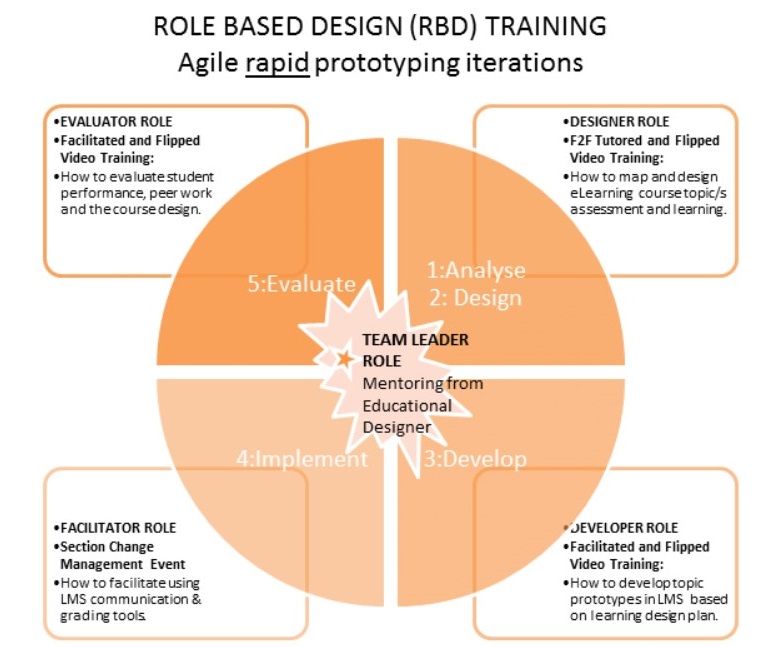
Role-Based Training: Why Is It Important And The Benefits
Assistant superintendents and school districts around the nation place a high premium on hiring new teachers and providing them with the resources they require to remain in their positions. Giving students the education, they need has proven to be difficult in light of the persistent teacher shortage.
Here are a lot of learning activities and pathways that are pertinent to the training of new teachers, including subjects that enhance role-based training. What you should know about adding role-based training to initial teacher preparation programs is provided here.
What Is Role-Based Training?
The phrase ‘role-based training’ describes a series of educational exercises that give staff members focused, practical training to assist them gain the particular abilities and know-how needed to succeed in the classroom. The underlying theory is that people frequently learn best when they are allowed to put the abilities they are picking up into practice.

In actuality, role-based training is customized to fit certain work tasks and given responsibilities. To get started using Google Classroom, an educator might prepare an assignment or add student work grades. They might also learn problem-solving techniques through a role-based training program that they can employ in the classroom.
Do you follow us on Social Media? If not, then you’re missing out on a lot of informative content. We regularly share upgraded educational content, tips, feedback, and more. Check us out by clicking the profiles here - Facebook / Twitter / LinkedIn / Pinterest / Instagram / YouTube
6 Benefits Of Role Based Training
Role-based training may be included in teacher onboarding to help school systems overcome the difficulties associated with hiring and keeping new teachers. They are:
1. Higher Training ROI
The best time to invest in teacher training is when assistant superintendents and school districts think it will pay off in the long run. Once implemented, role-based training needs little continuing costs and gives new instructors the practical experience they need to enter the classroom with confidence. Preparing new teachers for success reduces the chance of teacher attrition and spares school systems the cost of recruiting and onboarding more staff members to cover vacancies.
2. Reduced Ramp-Up Time
Aside from providing you with a better return on investment, role-based training can also assist you in quickly acclimating new teachers to the classroom environment. Teachers who lack practical experience are more likely to require follow-up assistance when they encounter issues or complications with classroom supplies and school policies.
3. Improved Problem-Solving Skills
Every teacher faces challenges in the course of their profession, and one of the most important abilities a teacher may possess is the capacity to analyze issues as they emerge and come up with solutions. New instructors may enhance their problem-solving abilities in real time using role-based training.
4. Higher Engagement
When their training applies to their work in the classroom and is practical, teachers are more likely to be engaged. Role-based training concentrates on essential abilities, so learners find it helpful and eagerly engage in it.
5. Fill Skill Gaps
The ability to pinpoint a new teacher's strengths and shortcomings and offer practical training to correct skill gaps is one of the main advantages of role-based training for trainers. Role-based training lets teachers get their hands dirty and then provides them with the resources they need to connect with their students, as opposed to attempting to predict where they need the most assistance.
6. Direct, Personalised Training
Lastly, role-based learning provides newly licensed teachers with the opportunity to engage in individualized, one-on-one training that is customized to meet their requirements. They can focus on learning new skills and receive assistance with anything related to their job function that they might not be familiar with.
Is Role-Based Training Effective For New Teachers?
Role-based training works well for new hires for the following reasons:
- Hands-On Opportunities For Problem-Solving Skills
The main objective of role-based training materials should be problem resolution, along with teaching instructors the particular techniques they may use in the event of an unforeseen circumstance or difficulty.
- Helps Teachers Meet Current And Future Goals
It may close skill gaps and reduce the likelihood that instructors won't have the necessary training to engage students and provide the greatest learning outcomes when they join the classroom, making it a crucial component of training.
- Boosts Productivity And Engagement
Because role-based training can be given electronically and is thus accessible, your new hires won't encounter any barriers that would keep them from receiving the instruction they require. Because it's customized, it's also more engaging than conventional training formats.
- It's Adaptable
The advantage of well-designed role-based training is that it requires very little ongoing maintenance and can be easily modified to meet the evolving demands of your district.
Curate Your Role-Based Training
One of the finest methods we know of for giving new teachers and other school employees an onboarding experience that is useful, approachable, and pertinent to their time spent in the classroom and with kids is role-based training. Does your school system want to include role-based training in its new teacher training program? A course in Bachelor of Education in Special Educational Needs will enable you to involve the same strategies in your school for special education.
We believe education should be accessible for everyone. That’s why we don’t charge for our blogs. Find the right course that will help you in your career with us, contact us at +66-21055721. You can mail us at act@asiancollegeofteachers.com

